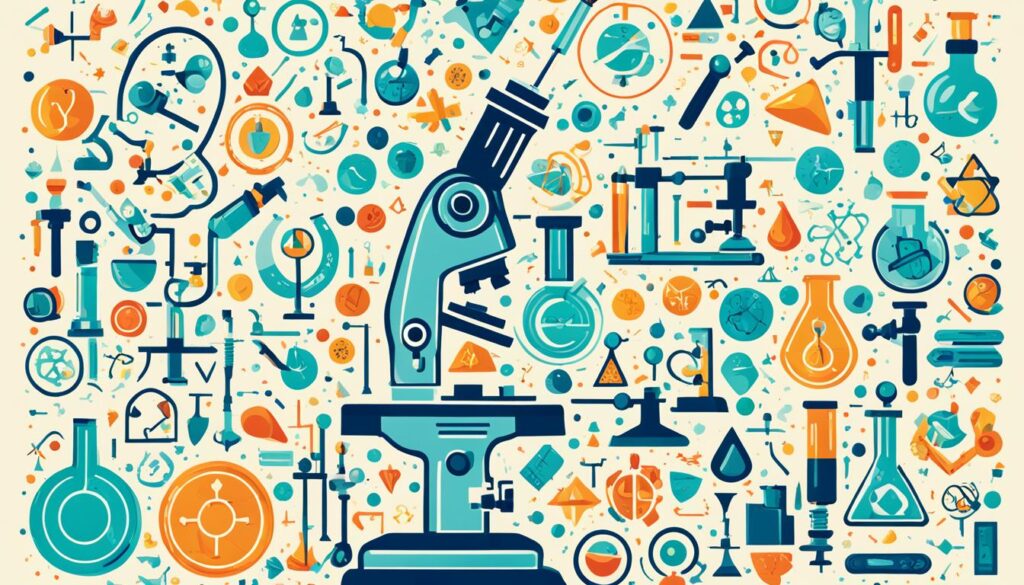The Hearth of Heritage: Warming Up to Traditional Values in Modern Education
Traditional values in education have long been the guiding force behind the development of future generations. These values, deeply rooted in our heritage, provide a solid foundation for holistic learning experiences that shape students into well-rounded individuals.
While modern education has seen advancements in technology and methodologies, it is crucial not to overlook the importance of traditional values. The integration of heritage into educational practices fosters a sense of identity, cultural appreciation, and ethical development in students.
In this section, we will explore the significance of traditional values in modern education. We will delve into how heritage plays a role in shaping educational practices and the benefits of instilling values in students. By understanding the connection between tradition and education, we can create enriching and meaningful learning environments.
Key Takeaways:
- Traditional values in education provide a solid foundation for holistic learning experiences.
- The integration of heritage in educational practices fosters a sense of identity and cultural appreciation.
- Instilling values in students promotes ethical development and character building.
- Recognizing the importance of tradition in education creates enriching learning environments.
- Combining modern advancements with traditional values paves the way for a more balanced and effective education system.
The Importance of Secular Ethics in Contemporary Academia
In today’s academic sphere, there is a growing recognition of the vital role that secular ethics play in shaping educational environments. Secular ethics, which prioritize the principles of fairness, compassion, and justice, provide a framework for nurturing holistic development and fostering a harmonious educational community.
Understanding His Holiness’s Advocacy for Universal Values
One prominent advocate for the integration of universal values in education is His Holiness the Dalai Lama. His Holiness emphasizes the importance of fostering compassion, empathy, and ethical conduct as foundational values in academic institutions. By embracing these universal values, students can cultivate a sense of responsibility towards themselves, others, and the world around them.
“Compassion and kindness are not only important values in our personal lives but are also essential in creating a more just and peaceful society. By incorporating these values into education, we can empower students to make a positive difference in the world.” – His Holiness the Dalai Lama
Recognizing Warm-Heartedness and Self-Discipline as Educational Foundations
Alongside secular ethics, warm-heartedness and self-discipline are regarded as fundamental pillars in education. Warm-heartedness involves nurturing empathy, care, and kindness towards oneself and others, creating a compassionate learning community. Self-discipline, on the other hand, enables students to develop a strong moral compass, cultivating self-control, responsibility, and ethical decision-making.
The cultivation of warm-heartedness and self-discipline in education complements the academic development of students, equipping them with the essential tools to navigate challenges, build meaningful relationships, and contribute positively to society.
| Secular Ethics in Academia | Benefits |
|---|---|
| Promotes fairness and justice | – Fosters a sense of equality and respect among students |
| Nurtures compassion and empathy | – Encourages understanding and kindness towards others |
| Develops ethical decision-making skills | – Equips students with the ability to make responsible choices |
| Creates a harmonious learning environment | – Enhances collaboration, cooperation, and positive relationships |
Note: The table above highlights the benefits of incorporating secular ethics in academia.
By embracing secular ethics and universal values, along with warm-heartedness and self-discipline, academic institutions can foster a nurturing and inclusive learning environment. These ethical foundations not only enhance the academic growth of students but also equip them with the tools they need to navigate the complexities of the world with compassion and integrity.
Religious Harmony and Its Role in Modern Educational Systems
In today’s diverse society, religious harmony plays a crucial role in shaping modern educational systems. By fostering an environment of mutual respect and understanding, educators can promote inclusivity and enhance the learning experience for all students.
Integrating Diverse Philosophies to Promote Mutual Respect
One way to foster religious harmony is through the integration of diverse philosophies into the curriculum. By incorporating teachings from different religions and belief systems, students gain a broader understanding of the world and develop a sense of respect and appreciation for different cultures and traditions. This integration promotes empathy, tolerance, and a celebration of diversity.
Through the exploration of various religious perspectives and their ethical teachings, students also learn to navigate moral dilemmas and develop a strong moral compass. This integrated approach to education empowers students to make informed decisions that are grounded in respect, empathy, and understanding.
Promoting Moral Development Through Interfaith Dialogues
Interfaith dialogues provide a platform for students to engage in meaningful discussions and conversations about religion, morality, and spirituality. These dialogues enable students from different religious backgrounds to share their perspectives, explore commonalities, and address misconceptions. By fostering open-mindedness and intellectual curiosity, interfaith dialogues promote moral development and cultivate a sense of unity among students.
Interfaith dialogues also encourage critical thinking and self-reflection, as students are given the opportunity to challenge their own beliefs and expand their knowledge. This process of inquiry leads to personal growth and a deeper understanding of one’s own values and the values of others.
Religious harmony in education not only enriches the educational experience but also prepares students to be compassionate and globally-minded individuals. By integrating diverse philosophies and promoting interfaith dialogues, educational systems can create an inclusive and harmonious environment that nurtures moral development and fosters mutual respect among students of all backgrounds.

Preserving Language and Culture in the Global Education Arena
In today’s globalized world, preserving language and culture in education is crucial. Language and culture are integral aspects of our identity and heritage, and they play a significant role in shaping who we are as individuals and communities. By embracing linguistic and cultural diversity, we can create inclusive and enriching educational environments.
However, preserving language and culture in education comes with its challenges. The rapid spread of global education often leads to the dominance of a few widely spoken languages and the marginalization of smaller or less widely known languages. This can result in the loss of linguistic diversity, which in turn impacts the preservation of unique cultural traditions and knowledge systems.
Overcoming these challenges requires a multifaceted approach. Educators and policymakers need to actively promote and support the teaching and learning of diverse languages. They should implement programs that encourage students to learn and appreciate different languages, fostering a sense of linguistic inclusivity. Additionally, cultural competence must be integrated into curricula, allowing students to explore and embrace various cultures and traditions.
One way to preserve language and culture is through the implementation of bilingual or multilingual education programs. These programs not only provide students with a solid foundation in their native language but also enable them to learn additional languages. By nurturing bilingualism or multilingualism, we empower students to connect with their heritage and engage in cross-cultural dialogue.
Furthermore, technology can be utilized to preserve language and culture in education. Online platforms and resources can offer language-learning opportunities for students, regardless of their geographic location. Digital tools can also provide access to cultural materials and immersive experiences, fostering a deeper understanding and appreciation for diverse cultures.
In conclusion, preserving language and culture in the global education arena is essential for cultivating inclusivity, celebrating diversity, and nurturing cultural heritage. By prioritizing linguistic and cultural preservation in education, we can create a more interconnected and harmonious world. Through collaborative efforts and innovative approaches, we can ensure that future generations embrace their linguistic and cultural identities while becoming global citizens.
Revitalizing Ancient Indian Knowledge in Modern Curricula
In today’s rapidly evolving educational landscape, there is a growing recognition of the value of ancient Indian knowledge and its potential to enrich modern curricula. By merging traditional mind sciences with contemporary learning practices, educators are finding innovative ways to enhance student development and empower learners for success in the 21st century.
One of the key areas of focus in revitalizing ancient Indian knowledge is the incorporation of traditional mind sciences. These mind sciences encompass practices such as yoga, meditation, and mindfulness, which have been passed down through generations and form an integral part of India’s rich cultural heritage. By integrating these practices into education, students can develop a deeper understanding of their own minds and emotions, cultivate self-awareness, and cultivate resilience in the face of challenges.
Logic and reasoning also play a crucial role in student empowerment. Ancient Indian philosophy has a strong emphasis on logical thinking and reasoning, which are essential skills for critical thinking. By incorporating logic and reasoning exercises into the curriculum, students can develop the ability to analyze, evaluate, and construct well-reasoned arguments. This empowers them to approach problems and challenges with confidence, making informed decisions and contributing to their own growth and the betterment of society.
Furthermore, the revitalization of ancient Indian knowledge in education goes beyond the acquisition of knowledge and skills. It encompasses a holistic approach to education that nurtures the physical, mental, emotional, and spiritual well-being of students. By recognizing the interconnectedness of these aspects, educators can create a balanced and inclusive learning environment that addresses the diverse needs of students.
As we look to the future of education, the revitalization of ancient Indian knowledge holds immense potential to shape a new generation of learners who are rooted in their cultural heritage while embracing the opportunities of the modern world. By integrating traditional mind sciences, logic and reasoning, and fostering student empowerment, we can create a transformative educational experience that prepares students not only for academic success but also for a fulfilling and meaningful life.

Empowering Parents in Education: Strengthening Family-School Partnerships
In order to create a collaborative and supportive educational environment for students, it is crucial to empower parents through the strengthening of family-school partnerships. When parents are actively involved in their child’s education, it can greatly enhance their academic success and overall well-being. By fostering a strong connection between families and schools, we can establish a solid foundation for student growth and achievement.
Facilitating Parental Involvement in School Activities
Facilitating parental involvement in school activities plays a vital role in strengthening family-school partnerships. This involvement can take various forms, such as volunteering in classrooms, participating in parent-teacher conferences, or joining parent advisory committees. By actively engaging parents in school activities, it not only enhances their understanding of their child’s educational journey but also fosters open communication between home and school.
When parents feel welcomed and included in school activities, they are more likely to develop a sense of belonging and investment in their child’s education. This, in turn, positively impacts their child’s motivation, engagement, and overall academic performance. It also serves as a powerful example for children, demonstrating the value of education and parental support.
Resources and Support Systems for Educating Parents
Educating parents is another crucial aspect of empowering them in education. By providing resources and support systems, we can equip parents with the knowledge and tools they need to actively participate in their child’s learning journey.
One effective way to educate parents is through workshops and seminars that focus on topics such as effective communication with teachers, strategies for supporting learning at home, and understanding the curriculum. These sessions provide valuable insights and practical tips that empower parents to make informed decisions and contribute meaningfully to their child’s education.
Furthermore, online resources and platforms can also be utilized to provide parents with convenient access to educational materials, articles, and videos on various topics related to parenting and education. These resources enable parents to stay informed and engaged, even outside of traditional school settings.
By strengthening family-school partnerships and empowering parents in education, we can create an inclusive and supportive educational ecosystem that nurtures the holistic development of students. When parents are actively involved and equipped with the necessary resources, they become powerful allies in the education system, driving positive change and fostering a love for learning in their children.
Incorporating Morals and Ethics in Science Education
In the realm of science education, it is not enough to simply teach the theories and principles that govern the natural world. To create a truly well-rounded and responsible scientist, it is crucial to incorporate morals and ethics into the teaching and learning process. By instilling ethical principles and values in STEM subjects, we can shape the future generation of scientists who are not only technically proficient but also morally conscientious.
When students are exposed to the ethical dimensions of science, they gain a deeper understanding of the implications of their work and the impact it can have on society. They develop a sense of responsibility and learn to consider the potential consequences of their actions. This fosters a culture of accountability and integrity within the scientific community.
One way to incorporate morals and ethics in science education is by encouraging open discussions and critical thinking. Students should be encouraged to reflect on the ethical implications of scientific advancements and confront ethical dilemmas in their studies. This helps them develop the ability to weigh the benefits and risks associated with their work, promoting informed decision-making.
Additionally, case studies and real-world examples can be used to highlight the importance of ethics in science. By exploring historical events or contemporary scenarios where ethical considerations played a significant role, students gain a broader perspective on the complexities of scientific research and its ethical implications.

Teaching science without ethics is like flying without wings. Morals and ethics form the foundation of responsible scientific practice.
Furthermore, collaborations with ethical experts outside the field of science can provide valuable insights and guidance. By working with ethicists, policymakers, and other professionals, students can engage in interdisciplinary discussions that broaden their understanding of the ethical dimensions of scientific work.
Ultimately, the integration of morals and ethics in science education nurtures responsible and ethical scientists who not only contribute to the advancement of knowledge but also make choices that align with societal values. By cultivating a strong ethical foundation, we can ensure that science is conducted with integrity and for the betterment of humanity.
Confronting the Challenges of Globalization in Education
In the face of globalization, the field of education is undergoing significant transformations. As societies become increasingly interconnected and technology advances at an unprecedented pace, educators must confront various challenges to ensure that students are prepared for the complex demands of a globalized world. This section will explore two key aspects to address the challenges of globalization in education: adjusting teaching practices to leverage technological advancements and developing morals and higher values to navigate a rapidly changing society.
Adjusting Teaching Practices to Address Technological Advancements
Technological advancements have reshaped the landscape of education, providing new opportunities and tools for teaching and learning. To effectively prepare students for the digital age, educators must adapt their teaching practices to integrate technology seamlessly into the classroom. This includes leveraging digital resources, embracing online learning platforms, and encouraging collaborative and interactive methods of instruction.
By incorporating technology into their teaching, educators can create more engaging and personalized learning experiences that cater to the diverse needs of students. They can also foster digital literacy skills and equip students with the knowledge and competencies required to thrive in the digital era.
Furthermore, teachers must stay abreast of emerging technology trends in education and continually update their skills to ensure they can effectively utilize these tools. Professional development programs and ongoing training can play a crucial role in empowering educators to leverage technology for enhanced student learning outcomes.
Developing Morals and Higher Values in a Complex Society
Globalization has brought a myriad of cultural, social, and ethical challenges that students must navigate. In an increasingly interconnected world, it is essential to prioritize the development of morals and higher values within educational settings. By instilling moral principles such as empathy, respect, and integrity, educators can equip students with the ethical foundations needed to navigate the complexities of a global society.
Moral and values education should not be confined to predefined curriculum content. It should permeate the entire learning environment, encompassing classroom interactions, school policies, and extracurricular activities. This holistic approach enables students to internalize values and apply them in real-life situations.
Moreover, fostering an inclusive and diverse learning environment cultivates a sense of global citizenship. By embracing different perspectives and promoting intercultural understanding, educators can nurture students who are empathetic, culturally competent, and capable of working collaboratively with individuals from diverse backgrounds.
Addressing the challenges of globalization in education requires a proactive and adaptable approach. By adjusting teaching practices to leverage technological advancements and developing morals and higher values, educators can prepare students to thrive in an interconnected and rapidly evolving world.
Addressing the Decline in Student Interest in STEM Subjects
The decline in student interest in STEM subjects is a concerning trend that needs to be addressed. As the world becomes increasingly reliant on science, technology, engineering, and mathematics, it is crucial to enhance curricula in order to rekindle enthusiasm in science and technology education.
To tackle this issue, it is important to identify the factors contributing to the declining interest in STEM subjects. This includes understanding the perception of these subjects among students, the teaching methods used, and the relevance of the curriculum to real-world applications.
One strategy for enhancing STEM curricula is to introduce hands-on, inquiry-based learning experiences. By providing students with opportunities to actively engage in scientific experiments and engineering projects, they can develop a deeper understanding of STEM concepts and their practical applications. This approach fosters critical thinking, problem-solving abilities, and a genuine passion for science and technology.
Another key aspect of enhancing STEM curricula is promoting diversity and inclusivity. By showcasing the contributions of individuals from underrepresented groups in STEM fields, we can inspire students from all backgrounds to pursue careers in these areas. Furthermore, integrating real-world examples and case studies that highlight the impact of STEM in various fields can demonstrate the relevance and excitement of these subjects.
In addition to curriculum enhancements, it is vital to provide teachers with professional development opportunities to equip them with the necessary skills and knowledge to effectively teach STEM subjects. By staying up-to-date with the latest research and teaching methodologies, educators can create engaging and interactive learning experiences that ignite students’ curiosity and enthusiasm.
By addressing the decline in student interest in STEM subjects, we can rekindle a passion for science and technology education. Through enhanced curricula, hands-on learning experiences, and promoting diversity and inclusivity, we can nurture the next generation of scientists, engineers, and innovators.
Building Competencies and Values for Modern Societies through Education
In today’s rapidly changing world, education plays a critical role in preparing students for success. It is not only about acquiring knowledge and skills but also about building competencies and instilling values that are essential for modern societies.
Training for Specific Tasks Versus Educating the Whole Person
When it comes to education, there is often a debate between training students for specific tasks and educating the whole person. While it is important to provide students with practical skills that align with the needs of the workforce, it is equally important to foster a holistic approach to education that nurtures their intellectual, emotional, and social development.
By focusing solely on training for specific tasks, we risk creating a generation of individuals who are proficient in their fields but lack the ability to think critically, solve complex problems, and interact effectively with others. On the other hand, by embracing holistic education, we can cultivate well-rounded individuals who not only excel in their chosen professions but also possess strong ethical values, empathy, and a sense of responsibility towards their communities.
Learning Outcomes Beyond Economic Advantages
Traditionally, the value of education has been measured in terms of economic advantages, such as higher income potential and better job opportunities. While economic success is undoubtedly important, it is crucial to recognize that the purpose of education extends beyond financial gains.
Holistic education focuses on nurturing the whole person, promoting personal growth, character development, and ethical values. It aims to equip individuals with the skills and knowledge necessary for not only a prosperous career but also a fulfilling life. By broadening the scope of learning outcomes, we can empower students to become lifelong learners, responsible citizens, and contributors to society.
Through holistic education, students develop critical thinking, creativity, adaptability, collaboration, and problem-solving skills. They develop a strong moral compass, empathy, and respect for others. These qualities are essential for navigating the complexities of the modern world, contributing positively to their communities, and finding purpose and fulfillment in their lives.
By building competencies and values in education, we are not only shaping the future of individuals but also the future of societies. It is through education that we can create a world where individuals are equipped with the skills, values, and mindset needed to tackle global challenges, promote social progress, and foster a more inclusive and sustainable future.
Conclusion
In conclusion, the role of traditional values in educating future generations cannot be underestimated. These values provide a strong foundation for students’ personal and academic development, helping them navigate the complexities of the modern world. By incorporating traditional values into educational practices, we can create a harmonious blend of heritage and progress in learning environments.
It is essential to envision a future where traditional values coexist with modern advancements. By doing so, we can ensure that education remains relevant and meaningful in an ever-changing society. This harmonious blend allows students to appreciate their cultural heritage while also preparing them to contribute positively to the world.
The future of education lies in striking a balance between tradition and innovation. By embracing traditional values, we instill qualities such as respect, integrity, and empathy in students, shaping them into responsible and compassionate individuals. By fostering this harmonious blend, we can create learning environments that empower students to think critically, solve problems, and make ethical decisions.
As we move forward, let us remember the timeless wisdom of our past and integrate it with the possibilities of the future. By reaffirming the role of traditional values in education and envisioning a harmonious blend of heritage and progress, we can pave the way for a bright and promising future for our students and society as a whole.
